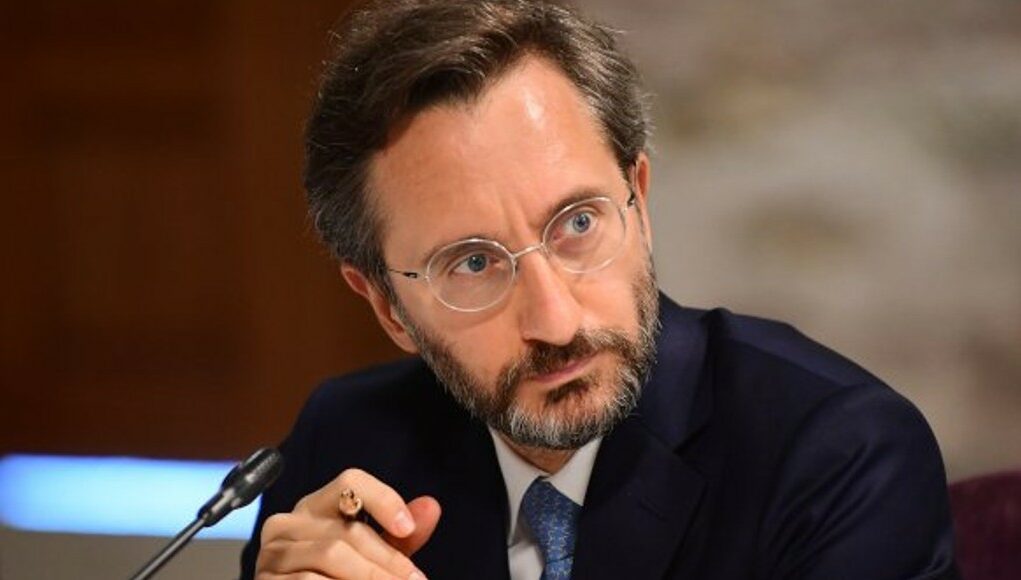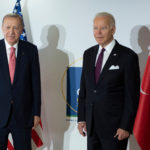An aide to Turkish President Recep Tayyip Erdoğan has slammed a statement from a US State Department official who criticized a recent move by Turkey to introduce a ban on online foreign media outlets if they do not obtain broadcasting licenses, saying that the “age of inequality” in bilateral relations is over.
“Sovereignty and reciprocity are cornerstones of international relations. The U.S. does not get to criticize Türkiye’s regulations whilst regulating the activities of foreign media organizations on American soil. The age of inequality in bilateral relations is over,” Presidential Communications Director Fahrettin Altun tweeted on Thursday, using the Turkish name for Turkey in line with a recent government decision to promote it as an international brand.
Sovereignty and reciprocity are cornerstones of international relations. The U.S. does not get to criticize Türkiye’s regulations whilst regulating the activities of foreign media organizations on American soil. The age of inequality in bilateral relations is over. https://t.co/cynwC0Alaj
— Fahrettin Altun (@fahrettinaltun) February 24, 2022
Altun was responding to a statement from Ned Price, US State Department spokesperson, who on Wednesday tweeted, “The U.S. is concerned by the Turkish Radio and Television Supreme Council’s (@rtukkurumsal) decision to expand government control over free press outlets by applying broadcasting requirements to @VOATurkish & other online outlets. A free media is essential to a robust democracy.”
Price was referring a recent decision by Turkey’s Radio and Television Supreme Council (RTÜK), which gave three international news agencies operating in the country a 72-hour deadline to apply for online broadcasting licenses, warning that access to those news websites that fail to obtain a license will be banned. The deadline began to run on Monday.
The three foreign media outlets in question are the US state-owned international multimedia broadcaster Voice of America (VOA), Germany’s state-run broadcaster Deutsche Welle and Lyon-based Euronews.
The move has been described by the media outlets as an attempt at censorship and to expand the Turkish government’s control over the domestic media to the foreign outlets, which are the only source of free and independent journalism for some people in Turkey, where the majority of the media is controlled by the government.
Deutsche Welle and VOA announced earlier this week that they would fight back and appeal RTÜK’s decision and take legal action in the Turkish courts.
In 2019 Turkey revised its media regulations to allow RTÜK to supervise online broadcasts. Since the new regulations went into effect, various streaming platforms including Netflix and Amazon Prime have applied for and received licenses.
RTÜK is a controversial agency that is accused of contributing to increasing censorship in the country by imposing punitive and disproportionate sanctions on independent television and radio stations critical of the Turkish government.
According to Reporters Without Borders (RSF), 85 percent of the national media in Turkey is owned by pro-government businessmen who toe the official line.
Source:Turkish Minute
***Show us some LOVE by sharing it!***



